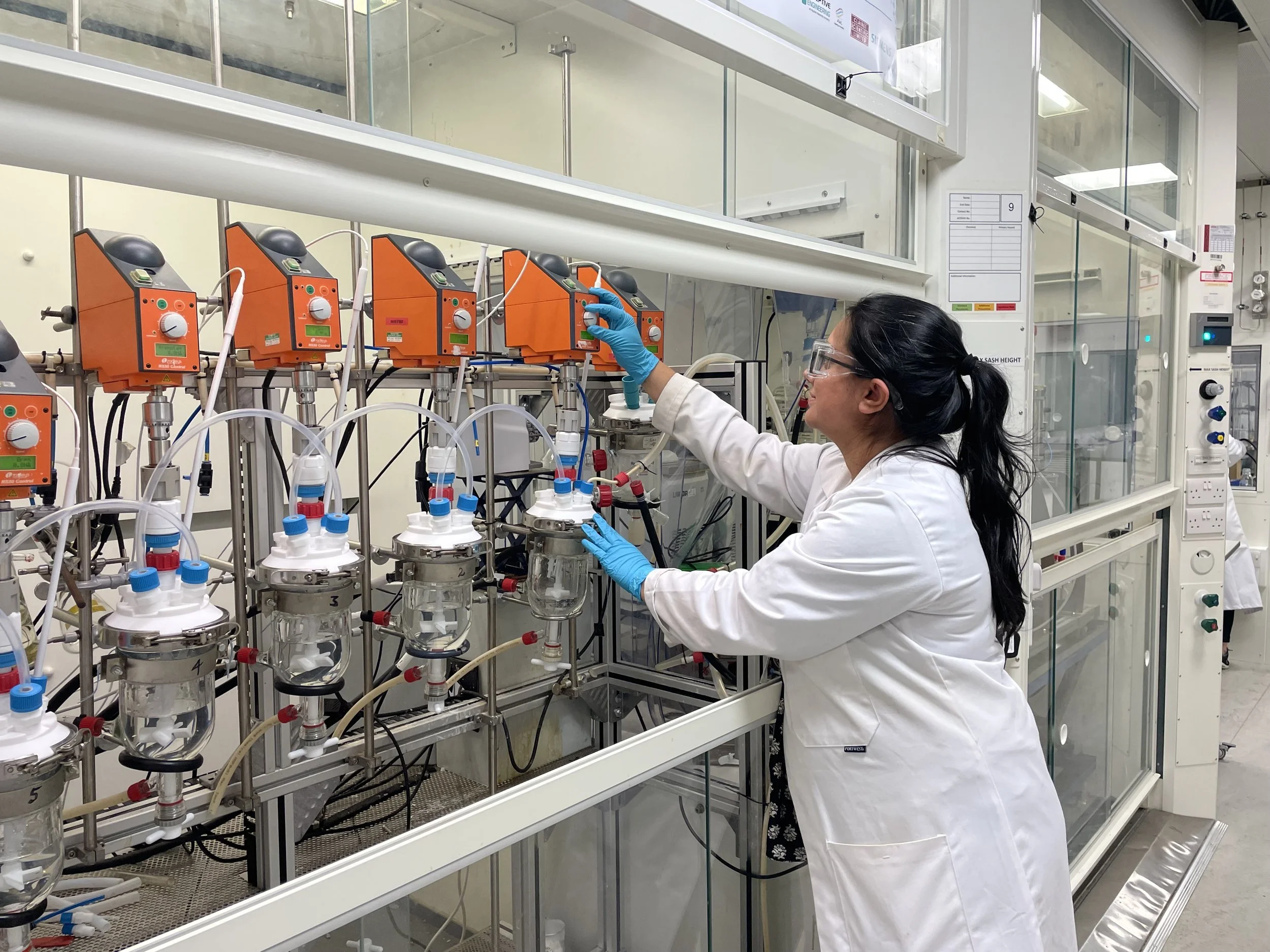Digital Pharmaceutical Process Design: Faster, Cost Effective and Sustainable Delivery of Quality Drug Substance
Through digital-first process design, CMAC researchers decrease the material required for API development by an order of magnitude.
The Challenge
The pharmaceutical industry faces the global challenge to enhance the development and manufacture of medicines to be faster, more cost effective and productive, to embed sustainability and to deliver improved security of supply whilst still assuring the quality and safety of medicines to patients. To achieve this goal, we must deliver digital transformation of Chemistry, Manufacturing and Control (CMC) through the use of industrial digital technologies.
Implementing a digitally designed process to manufacture medicines is perceived as a high-risk endeavour for many process developers. Not only will it require significant time and resources from R&D, with little precedent it is unclear how regulators will view and assess the resulting processes. By presenting the current capability and benefits of digital pharmaceutical process design, CMAC can actively address these concerns and further drive digitalisation in the sector.
The Solution
CMAC’s expert interdisciplinary team worked together across the University of Strathclyde and Loughborough University to demonstrate a holistic digital-first approach for the engineering of quality particles. This was achieved by modelling several unit operations in series; selection of quality targets, screening solvents and crystallisation modes, wet milling for a smaller particle size, cooling seeded crystallisation for a larger particle size with accompanying isolation procedure, and testing product performance through dissolution.
“Digital-first” refers to using primary in silico modelling to inform and guide process design. It only requires experimentation for model parameterisation and enables the design of a process to produce quality products digitally. This contradicts traditional experience-driven approaches typically used in pharmaceutical manufacturing, where empirical knowledge on previously successful methods and the tacit expertise of researchers drives process development. Adjusting to digital-first approaches promises to decrease development time, cost, and resources to design a robust manufacturing process with design space flexibility.
Impact
Using mefenamic acid as a case study, the CMAC digital-first approach, informed two independent manufacturing runs, producing quality API material which met two distinct particle size targets. A wet-milling process produced a 90 g batch of particles reaching a D90 = 49 μm (model: 42 μm) target size. A 5-stage MSMPR seeded cooling crystallisation produced 71 g of particles which met the distinctly larger particle size target, D90 = 128 μm (model: 120 μm) in 3.6 hours of continuous operation at steady state. Overall, 1.5 kg of API material was used to develop and operate these two continuous processes, a significant reduction from the 10 kg of API material required to follow the traditional seeded cooling continuous crystallisation workflow.
With the breadth of data produced during digital process development, the models are transferable to new product quality targets for the same model system. In this demonstration, should the particle size targets for mefenamic acid be revised, a new process can be designed and implemented without any further explorative experiments providing a faster, cost-effective and sustainable alternative to physical experiments.
Although very successful, this case study highlighted some key challenges in producing a true predictive digital twin of a pharmaceutical process. During development, experimental complications were encountered around physical phenomena which result from material properties and rate processes which cannot be predicted and modelled through current tools. By addressing the limitations of the current digital tools, CMAC will further digitise process design to enable true “Quality by Digital Design” in pharmaceutical manufacturing.


